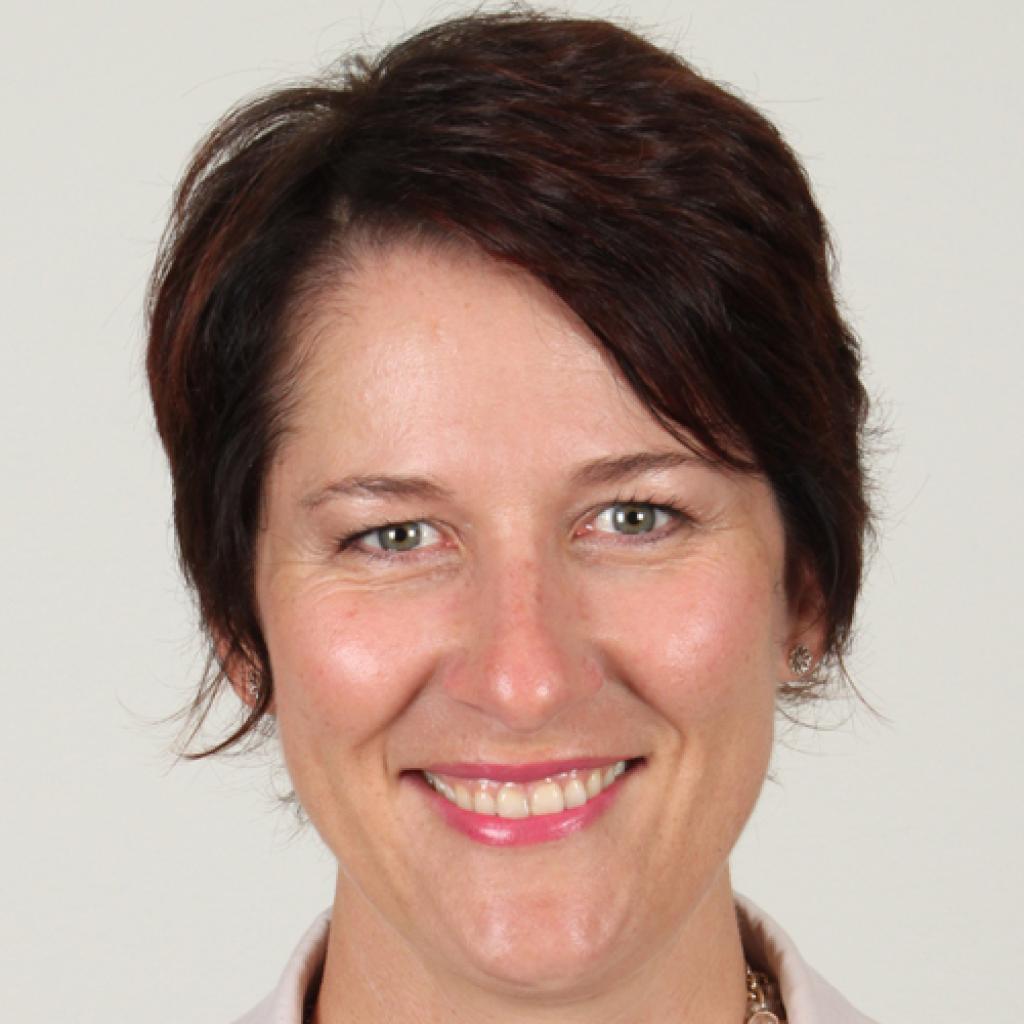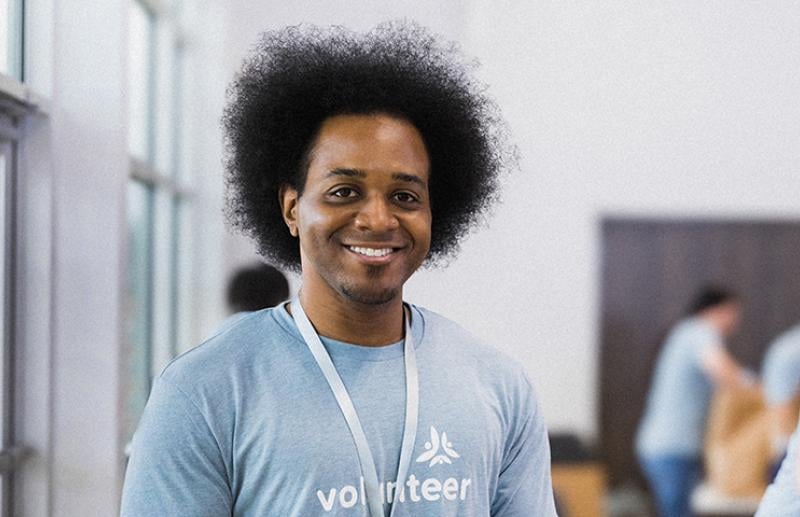Acquire the skills to start a business and improve your leadership skills
This internationally accredited PGDip Business Management and Administration will help you unlock the skills you need to set up and run your own business or practice, or to prepare yourself for a managerial position. That is why it covers essential management skills such as business finance, marketing management, and entrepreneurship and innovation. It also includes a module on responsible leadership, and a module on understanding the world, which will give you the bigger picture in terms of the global, African and local ecosystems in which you operate. This PGDip can give you access to an MBA.
A transformative learning pathway awaits you – in particular if you see your future self as a manager, leader, specialist, or entrepreneur.
Postgraduate Diploma
Postgraduate Diploma Business Management and Administration
The dates and fees for 2024 will be added once this information becomes available.
Modular
Dates for 2024: (on campus)*
- Block 1: 26 February – 2 March (Orientation on the Monday)
- Block 2: 20 – 24 May
- Block 3: 12 - 16 August
- Block 4: 28 October – 1 November
Fees: R109 648 (2024)
Duration: 1 or 2 years
*The Business School reserves the right to change programme dates and times.
Blended
Dates for 2024: (blended)*
- 15 January (Orientation) Remote.
- Classes commence 16 January @ 16:00 until 4 December
- Classes can run multiple evenings in one week
Foundation modules – Foundation modules – Tuesday (Blended 1), Wednesdays (Blended 2), Thursdays (Blended 3).
Specialisation modules – Wednesdays
Fees: R109 648 (2024)
Duration: 1 or 2 years
*The Business School reserves the right to change programme dates and times.
What you need to apply
- A 3-year Bachelor’s degree or advanced diploma at NQF level 7, or higher.
- A minimum of 2 years of relevant full-time work experience (preferably at a managerial level).
- Mathematics at NNS (Grade 12) level or equivalent
- Recognition of prior learning
- Application fee
- Certified copies of your academic records
- Certified copies of your degree certificates
- Copy of your ID/Passport
- Comprehensive CV indicating your work experience.
- Verification consent form
- Motivational essays
- Highly recommended: Proficiency in English.
Course Structure and Content
Acquire the skills to start a business or lead a team
Stellenbosch Business School recognised the need of managers and entrepreneurs to obtain a formal business management qualification, but not necessarily an MBA. At the same time, we also recognised the need of those who wanted to prepare themselves for access to an MBA in order to move to senior level positions.
If you want to start a business or prepare yourself for managerial roles, this internationally accredited PGDip Business Management and Administration (PGDip BMA) will serve you well.
The joint design of the PGDip BMA and MBA at the Business School allows students to experience an unrivalled learning path when doing the two qualifications in succession. However, the PGDip BMA is also an exit-level qualification that will not leave the graduate who does not want to do the MBA feeling short-changed. The PGDip BMA’s unique focus on general management skills, innovation, entrepreneurship and responsible leadership makes this a meaningful qualification on the African continent.
This PGDip will provide you with a transformative learning experience to acquire the leadership skills, thinking frameworks and capabilities you need to find your way forward – regardless of whether you see your future self in an executive, managerial, specialist or entrepreneurial position.
Study while you work
The flexible design of the programme allows you to choose the format (blended learning or modular) and duration (1 year or 2 years), making it easier for you to study while you work.
Key competencies you will acquire
- Essential management skills
- An entrepreneurial approach to business
- Responsible leadership skills
- Understanding context
- A global perspective with unique African contextualisation
Working professionals
- Managers who wish to complete an MBA but who do not qualify for entry directly into a Master’s programme. Successful completion of the PGDip BMA at a particular standard (65% average) will allow entry into the MBA. Students who did not obtain 65% average are still welcome to apply for the MBA, but will be treated like any other applicant and will have to comply with the full set of admission requirements, including selection tests.
- Entrepreneurs and managers who want to broaden their management skills, but who do not necessarily want to enrol for an MBA and/or who do not want to do research on MBA level.
- Managers and leaders who are working full-time, who cannot afford lengthy residency periods at the Business School, and/or who prefer to do most of their learning off-campus.
RPL candidates who wish to enrol for an MBA with us
- All Recognition of Prior Learning (RPL) candidates who do not have an NQF 6 qualification have to complete an appropriate Postgraduate Diploma before doing the MBA.
You need to do 4 of the following 7 foundation phase modules on offer:
The modules of the PGDip BMA are split into a foundation phase (covering skills, frameworks and tools you can apply in any field of work) and a specialisation phase (programme-specific modules).
- Term 1: Understanding the World
- Term 2: Responsible Leadership
- Term 3: Thinking Frameworks OR Business Analytics OR Managing Projects
- Term 4: Organisational Behaviour OR Managing Risk and Uncertainty
You also need to do the 4 specialisation phase modules:
- Term 1: Business Finance
- Term 2: Marketing Management
- Term 3: Business Process Management
- Term 4: Entrepreneurship and Innovation
Rules of progression
Passed at a certain level, this PGDip can give you access to these programmes at the Business School:
- MBA
- MPhil Development Finance IF you chose the Managing of Projects module in Term 3
- MPhil Futures Studies IF you chose Thinking Frameworks in Term 3
- MPhil Leadership Coaching
Blended Learning classes
Late-afternoon classes once every week for those doing their PGDip over 1 year, or once every fortnight for those doing their PGDip over 2 years. The blended learning classes are presented online and on campus. Classes are presented on Wednesday afternoons from 16:00 till 20:15 (short break included), and for some foundation modules on Tuesday or Thursday afternoons from 16:00 till 20:15 (short break included). The online classes are presented synchronously with the on-campus classes.
Advantages
- Flexibility: Study while you work with the flexibility of digital class attendance, which means minimum time away from work. Attending regular weekly or fortnightly classes can be likened to running a marathon.
- Less travel: The blended learning delivery option opens up access to students from elsewhere in South Africa, from other African countries and even further afield. It also lowers the opportunity cost to do this programme with us as it reduces travel and accommodation costs.
Modular classes
Four full blocks of classes spread over the year if you are doing the one-year PGDip (i.e. morning and afternoon classes from Monday to Friday), or four blocks of either morning or afternoon classes per year if you are doing the two-year PGDip (i.e. morning or afternoon classes from Monday to Friday).
Advantages
- Flexibility: Study while you work, with in-class experience and focused studies. Think of the modular blocks as sprints.
- An immersive experience: Being on campus for a week at a time allows you to focus on your studies without interruption from work. Working with your classmates in a face-to-face environment adds another dimension to collaborative (peer-to-peer) learning and network building.
1-year PGDip – 8 modules
Delivery mode for all modules (foundation and specialisation):
- Blended learning format: 1 late afternoon session per week for 40 weeks + 4 weeks of assessments
- Modular format: 4 full modular blocks spread over the year (i.e. mornings and afternoons)
2-year PGDip – 8 modules
Delivery of foundation modules in Year 1:
- Blended learning format: 1 late afternoon session every second week
- Modular format: 4 block weeks per year with classes either in the morning or the afternoon
Delivery of specialisation modules in Year 2:
- Blended learning format: 1 late afternoon session every second week
- Modular format: 4 block weeks per year with classes either in the morning or the afternoon
Notes:
- Each modular block runs from Monday to Friday, except the first modular block which runs from Monday to Saturday.
- South African students who select the 2-year option will be able to pay their fees over 2 years.
Stellenbosch Business School provides additional access to its programmes through its Recognition of Prior Learning (RPL) process, as recommended by the Council on Higher Education (CHE). The purpose of the Council on Higher Education’s policy on Recognition of Prior Learning is to develop and facilitate the implementation of RPL across the higher education sector and to base this on the principles of equity, access, inclusivity and redress of past unfair discrimination with regard to educational opportunities.
In line with the requirements of the Council on Higher Education, the Business School may admit up to 10% of its student body per programme under RPL.
Candidates who wish to be admitted under the RPL policy will firstly have to submit all the documentation as required for all prospective students. In addition, prospective students applying for this PGDip need to adhere to the following:
- Have at least an NQF 4 qualification (i.e., school-leaving certificate, matric) (all school and academic certificates are required)
- Have at least 10 years of working experience after obtaining a school-leaving certificate, of which at least 5 years should have been in a management or related professional position
- Submit a comprehensive CV, indicating detailed areas of responsibility as well as information of activities outside the work environment
- Provide the Business School with the names and contact details of at least two persons who can testify about the candidates’ managerial or related professional abilities (typically current or former line heads). These persons will be required to give a detailed personal reference about the candidate on forms provided by Stellenbosch Business School.
The RPL selection process entails the following:
- The Business School’s Admissions Committee (programme head and another academic) will conduct an in-depth interview with the candidate.
- If the Committee is of the opinion that the candidate has the ability to cope with the demands of the Postgraduate Diploma, he/she may be admitted.
- A recommendation of admission is sent via Stellenbosch Business School’s Academic Planning Committee to the Board of the Faculty of Economic and Management Sciences for notification.
- RPL candidates need to apply by 31 October each year to allow sufficient time for the assessment process.
This internationally accredited PGDip BMA will help you unlock the skills you need to set up and run your own business or practice, or to prepare yourself for a managerial position. That is why it covers essential management skills such as business finance, marketing management, and entrepreneurship and innovation.
Programme Fees
Application fee for 2024
Tuition fees for 2024
Important:
- Payment of full programme fees for South African students: Students can pay the full programme fees upon registration, or they can pay 80% of the annual fees by the end of May and the balance of 20% by the end of September.
Payment schedule (calculated on outstanding fee after deposit payment):
28 February - 31 May - 20% x 4 months (80%)
30 June - 20 September - 5% x 4 months (20%) - Payment of full programme fees for international students: International admitted students pay 50% of the annual fee as deposit. The remainder is due one month before commencement of the programme. The South African exchange rate favours international students.
- Deposit: All students pay a deposit on acceptance of admission. South African students must pay a set deposit on admittance. International admitted students pay 50% of the annual fee as deposit. The deposit payable is non-refundable and will be deducted from the total programme fees.
- Application fee: The application fee must accompany the application. The application fee is non-refundable.
- Additional fees for international students: International students pay an International Registration Fee (IRF) per academic year. Students from countries other than those in the Southern African Development Community also pay an International Tuition Fee (ITF) (i.e. students from SADC countries are exempt from the ITF).
- Study materials: Study fees include tuition, assessment and e-textbooks.
- Travel and accommodation: Students are responsible for their own travel and accommodation arrangements and costs.
- Fee changes: The Business School reserves the right to change the fees at anytime.
Please use your Student Number as Reference | Email proof of payment to [email protected] | Quote your student number in all correspondence.
Admission Requirements
- The online application form consists of various sections. In order to progress to the next section, all the information in the current section must be completed and accepted by the information management system.
- You will be able to complete the form in steps without losing information (i.e. you do not have to complete the application form in one sitting).
- The application process is the same for South African and international students.
- International students require a South African Qualifications Authority (SAQA) evaluation certificate to evaluate their degrees according to South African standards. The Business School’s International Affairs Office will first handle the credential evaluations of international students free of charge. Students need to complete the online application and upload all certificates with their application. The International Affairs Office will, as part of the application process, conduct an in-house credential evaluation after you have submitted your application. However, should the International Affairs Office be unsure about the status, recognition or accreditation of your qualification, we reserve the right to refer you to SAQA before we consider your application further.
- Applicants can go back to their applications and check the status of their applications.
- All degrees undergo a formal vetting process to eliminate fraudulent applications.
- It is best to use Google Chrome as web browser when completing your application.
- See Apply for your PGDip Business Management and Administration in 7 steps
Click on the APPLY NOW button and complete the online application form by completing each of the required sections. You also need to upload the following supporting documentation:
- Proof of school-leaving mathematics results
- Certified copies of academic records (which must include a transcript of the subjects)
- Detailed CV
- Consent form to verify your qualifications (please download, complete and upload the form in order for Managed Integrity Evaluation (Pty) Ltd to verify your qualification documents)
- Motivational essay (see above)
- Copy of ID (or passport for non-South African students)
- Marriage certificate (where the applicant’s new surname does not match that on the degree certificates)
- Signed declaration form
Payment of your application fee can be done online:
- Bank details: Bank: Standard Bank; Type of account: cheque account; Account name: US Business School; Account number: 073003069; Branch name: Stellenbosch; Branch code: 050610; Beneficiary name: Stellenbosch University; SWIFT code: SBZAZAJJ.
- Enquiries about payments: Please send an e-mail to [email protected].
What happens next?
Your application can only be assessed by the selection panel if it is accompanied by your completed online application form and all the supporting documents, and if you have paid the application fee. The outcome of the selection process will be made known within 30 days or as soon as possible thereafter. If you are uncertain whether your application is complete and is being processed, contact [email protected] for assistance.
Deadlines for PGDip Business Management and Administration applications:
- 30 November for applicants from South Africa
- 30 November for applicants from visa-exempt SADC countries, and the rest of the world
- 31 October for Recognition of Prior Learning applicants.
Also note the following:
- Deadlines for RPL applicants: Note that application deadlines for Recognition of Prior Learning (RPL) applicants are earlier than those for South African students.
- Study permits for international students: Obtaining a study permit (study visa) from the South African authorities can take up to 12 weeks from the date of being offered a place on a programme at the Business School. An early start with the application process is therefore recommended.
- Multiple-entry visas: Students from non-SADC African countries and other countries with visa requirements who need to apply for study visas can obtain a letter from Stellenbosch Business School confirming the duration of registration at the Business School. This will help students to obtain multiple-entry study visas in case of modular studies.
Study visa requirements for international students
All residential students who are non-South African citizens and are studying at Stellenbosch Business School require a study visa. Prospective students should contact their nearest South African Mission (South African Embassy, Consulate or High Commission), normally in their country of origin, to enquire about the requirements for study visas for South Africa. Applicants are required to present themselves in person so that biometric data may be captured. All international students can contact the Business School’s International Affairs Office at [email protected] for assistance. All international students must hold a valid visa for their intended activity prior to entering South Africa.
Notes on obtaining a study visa
- Obtaining a study visa from the South African authorities takes approximately 12 to 16 weeks from the date of application. However, some missions may process applications sooner. Sufficient time should be allowed for study visa applications to be processed.
- Your study visa application should include a copy of the letter offering a place on the Business School’s study programme. This letter will be provided by our Academic Administration once the application has been approved. A place on the programme must be confirmed before a study visa application can be considered by the South African Department of Home Affairs. Students should not proceed to Stellenbosch University or its Business School without a valid study visa.
- Although applicants are expected to determine exactly what they require to apply for a study visa, they can be expected to provide the following, among others: a police clearance certificate, proof of medical insurance recognised in South Africa, a radiology report, proof of sufficient funds, and an admission letter from Stellenbosch Business School. Your nearest South African Mission will be able to advise in this regard. The onus falls on the student to make sure that he/she submits a complete application pack.
- All documents should be certified and translated into English before submission (in order not to delay the outcome of the application).
You can still apply based on your management experience. You need to submit all the documentation and assessments as required for all prospective students, plus additional requirements as explained under Recognition of Prior Learning elsewhere on this page.
You need to write an essay of between 400 and 500 words on the topic outlined below, and submit this as PDF with your application pack:
Stellenbosch Business School aspires to be a source of value for a better world. How are your career goals aligned with being a source of value for a better world, and how would this postgraduate programme assist you in achieving your short-term (2 to 3 years) and long-term (10 years) career goals?
Contact Us
Please contact us if you need more information on this programme or the application process:
Programme enquiries and support with the applications process
Henry Booysen
Telephone : +27 (0) 21 918 4243
Email: [email protected]
Admission and registration enquiries
Joanne Sleigh
Telephone: +27 (0) 21 918 4239
Email: [email protected]
Frequently Asked Questions
Stellenbosch Business School’s Postgraduate Diploma Business Management and Administration provides access to our MBA when passed at a certain level. Graduates of our PGDip BMA who continue with our MBA will get recognition for two modules on the MBA if they continue with the MBA within 5 years of completing the PGDip. This also implies a substantial financial saving.
No. This learn-while-you-earn programme has two formats: a blended learning format that combines on-campus and online classes, and a modular format covered in five on-campus blocks over the year. Find more information about Blended Learning’s combination of technology with a strong human touch here.
All PGDip modules are assessed. Specific timeslots are allocated for assessments. A combination of assessments is used, which may include individual assignments, team assignments and individual tests.
Yes, but on a volunteer basis only. Alumni of the Business School offer to mentor students during their studies, and can provide career or industry advice. This service is offered in association with the business school’s Alumni Relations Office and Career Leadership Office.
Academic assistance is offered via a web-based learning environment, various software and database resources, teams (dedicated study groups), informal learning groups, and tutorials for certain modules. Support is also provided by the IT Division, Library, Career Leadership Office, Admissions Office, Academic Administration, International Affairs Office, and Alumni Relations Office.
Being fully prepared for each class session is extremely important. This starts with the compulsory reading and completion of online work prior to the contact sessions on campus. When you make time available to spend with the learning material prior to each block you will not fall into a pattern of playing catch-up at the time. This will help you to enjoy your studies, contribute in class and succeed in your studies.
Yes, students can spread the payment of their fees:
Payment of full programme fees for South African students: Students pay a set deposit on admittance. Students on the 1-year PGDip can pay the full programme fees upon registration, or they can pay 75% of the annual fees by the end of May and the balance of 25% by the end of September. Students on the 2-year PGDip can spread their payment over 2 years.
Payment of full programme fees for international students: International admitted students pay 50% of the annual fee as deposit. The remainder is due 2 weeks before commencement of the programme.
The closing dates for each programme appear on the web page for that programme. In general, the closing dates for applicants from South Africa, visa-exempt SACD countries, and the rest of the world range from 15 November to 30 November (depending on the programme; there are exceptions). All Recognition of Prior Learning students need to apply by 31 October.
This PGDip has been designed with flexibility in mind to enable students to study while they work. This means you will have options such as the following:
- Duration flexibility: Study over 1 year or over 2 years.
- Format flexibility: Attend classes online (blended learning) or on campus (modular).
If you choose the 1-year PGDip in the blended learning format, you will have one late afternoon session once a week. If you choose the 2-year PGDip in the blended learning format, you will have one late afternoon session once every fortnight. This means minimum time away from work. The blended-learning classes are delivered synchronously with the on-campus classes. This format allows for digital class attendance using an internet-linked laptop from wherever you are in the world, which means minimum time away from work. Attending regular weekly or fortnightly classes can be likened to running a marathon.
If you choose the 1-year PGDip in the modular format, you will have 4 full modular blocks spread over the year (i.e. mornings and afternoons). If you choose the 2-year PGDip in the modular format, you will have 4 block weeks per year with classes either in the morning or the afternoon. These classes are presented on campus. The modular classes provide you with in-class experience and focused studies without work interruptions. Working with your classmates in a face-to-face environment adds another dimension to collaborative (peer-to-peer) learning and network building.








